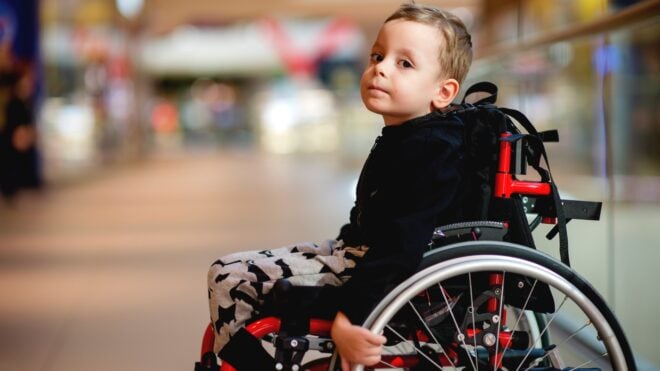
In this article:
As more and more people become comfortable with traveling again, it seems that airplane violence is on the rise. According to Forbes, in the first half of 2021 about 2,500 incidents have been reported, and unfortunately flight attendants and airline employees are often the target of this violence. In May, a Southwest Airlines flight attendant lost two teeth when a passenger struck her. Others are agressively acting out against the federal mask mandate, which is still in place for those who choose to fly.
Blame it on the mandate, people flying for the first time in a long time, and higher stress levels due to the pandemic, but airplane violence is all too common these days, and it's undoubtedly a scary time to be a flight attendant (or even a passenger).
Of course, this can be scary to hear, especially for parents who are planning on traveling with their kids soon. But there are plenty of ways to stay safe while flying and avoid these conflicts, as long as you start out your trip prepared and know what to do should you end up being a witness to one of these acts of violence.
How to handle violence while traveling

If you happen to be in the unlucky situation of witnessing airplane violence, you may be wondering what the right thing to do is — especially if you're traveling with a child. Of course, your kid's safety is your first priority, but there are small ways you can help prevent the situation from getting worse.
When incidents of airplane violence happen, flight attendants often look to passengers who are witnessing the event (or who seem to be frequent flyers) to help them bring it to an end. If you have a background in de-escalating a situation like this, it's not a bad idea to pitch in.
But if you don't, and you feel comfortable trying to defuse the situation, intervention expert Emily May told The Washington Post that creating a distraction can help. “Drop your phone or pretend you have to get something out of the overhead bin. This creates a break in the moment,” May said.
May also advised that using your phone to film what's going on can be helpful, too — as long as you're inconspicuous about it and pretend you're actually playing a game or sending a text.
If you do decide to directly intervene, it's important to keep calm and speak kindly and rationally to the person who is acting out — even if their behavior shows they might not deserve it.
How to avoid conflict on airplanes

Of course, you can't control whether or not you'll witness an act of airplane violence while traveling, but you can control your own behavior, and sometimes, that can be enough to avoid being directly involved in any conflict.
Even in the best of times, flying can be seriously stressful, so prepare as much as you can before you go. Be aware of protocols in place — like wearing a face mask — and adhere to them. Follow the instructions of airline personnel and flight attendants, as they are acting in the interest of your safety and that of your fellow passengers.
Make sure you have everything you need in your carry on, including toys and snacks to keep kids entertained, and that everyone in your crew has used the restroom before boarding.
If it's your child's first time on a plane, it can be good to let them know exactly what happens ahead of time, and even show them videos of what air travel is like on YouTube before your trip. And even if you typically enjoy a glass of wine as you head to your destination, you might find you're calmer (and more alert to your surroundings) without it.
Still feeling stressed and annoyed by the behavior of your fellow flyers? Put yourself in the shoes of the passengers who are triggering you. Maybe they're having a bad day, or maybe they're flying somewhere to say goodbye to a loved one. We really never know what someone else is going through.
Safety tips for air travel with kids

Of course, there are general safety tips that are important to keep in mind for flying anytime, not just during this contentious period.
- Take note of your surroundings, including emergency exits, when you board
- Pay attention to the safety video before take off, including how to inflate your emergency life jacket
- Bring a small pen flashlight in case of emergency
- Remember to frequently wash your hands and bring extra face masks
- Wear comfortable and sensible shoes
- Be kind to flight attendants and your neighbors
And if you're joined by your kids, make sure you fill them in on what to expect the day of your flight.
"When my kids understand their schedule for the day, they are calmer and happier. And when I task my big one with helping mommy take care of his little brother, he gets excited about the idea of travel," mom Brenda Janowitz wrote for Mom.com.
Here's hoping that airplane violence will peter out soon enough, but in the meantime, boarding your flight armed with all the right information (and plenty of entertainment for your kids) should definitely help.



